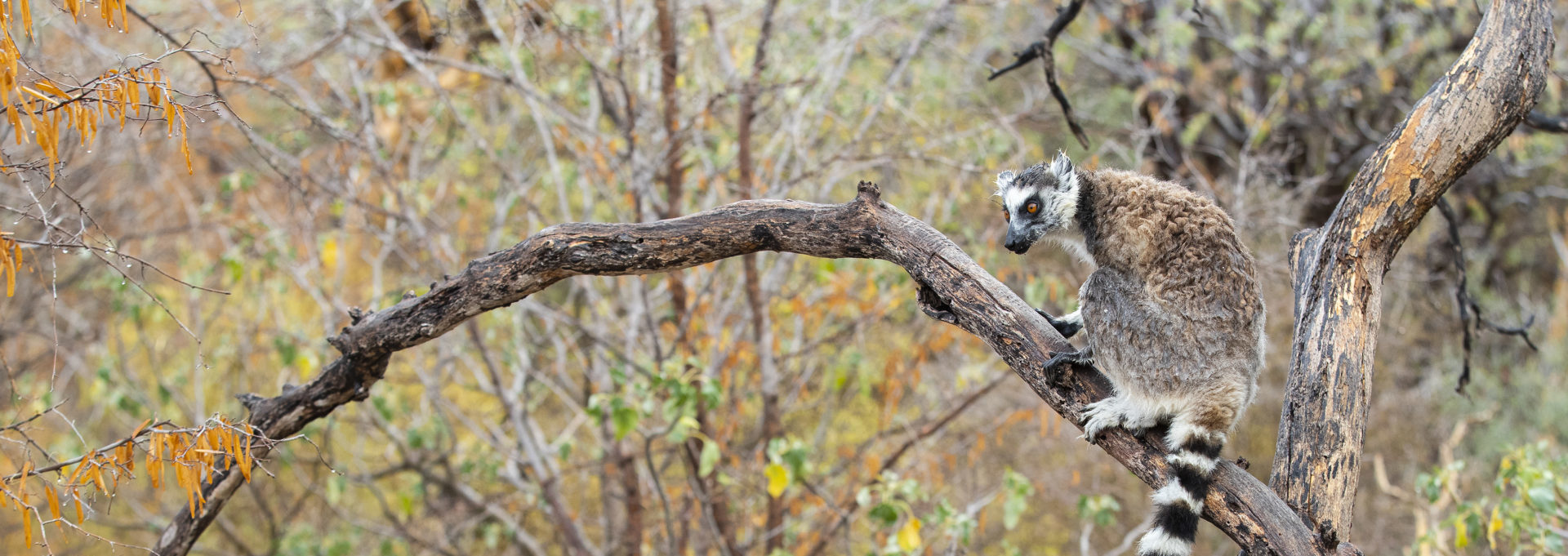Partner Profile: Lemur Love
Written by Lee Polansky, Senior Director of Executive Initiatives and Special Projects | Published: June 21, 2022
Dr. Marni LaFleur is the Founder and Director of Lemur Love, an organization in Madagascar that Population Connection is proud to support. Marni is also an Assistant Professor at the University of San Diego, where she teaches Biological Anthropology, and she’s a member of the International Union for Conservation of Nature (IUCN) Species Survival Commission (SSC) Primate Specialist Group and the IUCN SSC Primate Specialist Group Section for Human-Primate Interactions. She recently spoke over email with Dr. Lee Polansky, Senior Director of Executive Initiatives and Special Projects. Read on for an abridged version of that conversation.
What’s the story behind your work with lemurs and why you started Lemur Love?
I became fascinated with lemurs after observing them in forests in Madagascar and seeing their unusual social relationships. Unlike 98 percent of mammal species, lemur females dominate males. I ended up living with a troop of ring-tailed lemurs in Tsimanampetsotsa National Park for a year. While I was there, I saw illegal activities in the park and worried that the lemurs and their forest would soon disappear. I started Lemur Love to continue studying lemurs and to help protect them.
How has human population growth impacted Madagascar’s environment and wildlife, including lemurs?
It’s difficult for rural Malagasy women to access family planning—it’s simply unavailable and/or unaffordable. In 2019, one month of oral contraceptives increased from $0.05 to $0.50—many Malagasy women couldn’t pay the higher price. Without birth control, women have more children than they might necessarily want—children who need more resources—impacting the environment and threatening the lemurs.
Has anything surprised you about lemurs and their relationships to each other?
Ring-tailed lemurs are funny and have distinct personalities! The troop’s dominant female, Pinky, is a jerk and a neglectful mother, who routinely ignores calls from her babies and abandons them several times a day. I have a photo of her baby alone in the dark at 3:47am! This is extremely dangerous, obviously, and only something Pinky would allow.
Contrast Pinky with 5-head, a low-ranking female from the troop. She is more skittish—she constantly worries about everything, makes alarm calls often, and returns lost calls to all group members. She goes out of her way to help the young ones, and often picks up the slack for Pinky.
How does Lemur Love work to empower women?
We’re working with the Madagascar Ministry of the Environment and the Barefoot College Madagascar to train four women from Efoetse village to be solar engineers. When the women return to Efoetse after training, they’ll build a solar grid for the community. Currently, the village doesn’t have electricity, running water, or sanitation. Electricity is a major step in sustainable development and will no doubt lead to economic and development opportunities.
What’s the most satisfying aspect to working with Lemur Love?
Introducing Malagasy children to lemurs! Madagascar was a French colony until 1960, and education is still based on French curriculum, which includes European—but not Malagasy—flora and fauna. Many Malagasy children (and even adults) have never seen a lemur. It warms my heart to see young minds being sparked!
Learn more about Lemur Love at lemurlove.org.

